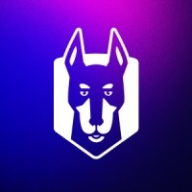

OpenText Core Application Security and Snyk compete in the application security domain, focusing on securing diverse application environments. While OpenText leads in comprehensive scanning capabilities and integration with CI/CD pipelines, Snyk stands out for its rapid integration with developer workflows and its focus on open-source vulnerabilities and container security.
Features: OpenText Core Application Security offers extensive scanning capabilities including SAST and DAST, and supports multiple languages and application types. It integrates with CI/CD pipelines and provides various scanning types with access to vulnerability reports. Snyk excels in integrating with developer workflows, focusing on open-source and container security. It provides detailed insights and actionable recommendations, supported by a comprehensive vulnerability database.
Room for Improvement: OpenText Core Application Security can improve by reducing scan times and false positives, and enhancing integration with newer technologies and additional languages. Users desire better reporting customization and faster incident management integration. Snyk needs enhancements in static analysis capabilities, supporting more programming languages, improving notification controls, and streamlining integration for developers. Both require improvements in false positive rates.
Ease of Deployment and Customer Service: OpenText Core Application Security supports on-premises, cloud, and hybrid deployments, offering flexibility for various IT environments. Customer service reviews are mixed, with some users experiencing support delays. Snyk focuses on cloud deployments suitable for DevOps environments, recognized for comprehensive documentation and responsive customer service, although it needs improvements in self-service educational resources and integration guidance.
Pricing and ROI: OpenText Core Application Security is perceived as expensive but considered a justified investment by many due to its robust security features, offering flexible licensing models. Snyk, though seen as costly, is effective, particularly for developers, offering value especially in open-source vulnerability management and container security, making it a preferred choice for cloud-focused organizations. Both are viewed as enhancing security posture and reducing vulnerabilities for long-term ROI.
| Product | Market Share (%) |
|---|---|
| Snyk | 6.5% |
| OpenText Core Application Security | 3.9% |
| Other | 89.6% |


| Company Size | Count |
|---|---|
| Small Business | 16 |
| Midsize Enterprise | 8 |
| Large Enterprise | 43 |
| Company Size | Count |
|---|---|
| Small Business | 20 |
| Midsize Enterprise | 9 |
| Large Enterprise | 21 |
OpenText Core Application Security offers robust features like static and dynamic scanning, real-time vulnerability tracking, and seamless integration with development platforms, designed to enhance code security and reduce operational costs.
OpenText Core Application Security is a cloud-based, on-demand service providing accurate and deep scanning capabilities with detailed reporting. Its integrations with development platforms ensure an enhanced security layer in the development lifecycle, benefiting users by lowering operational costs and facilitating efficient remediation. The platform addresses needs for intuitive interfaces, API support, and comprehensive vulnerability assessments, helping improve code security and accelerate time-to-market. Despite its strengths, challenges exist around false positives, report clarity, and language support, alongside confusing pricing and package options. Enhancements are sought in areas like CI/CD pipeline configuration, report visualization, scan times, and integration with third-party tools such as GitLab, container scanning, and software composition analysis.
What features define OpenText Core Application Security?Industries like mobile applications, e-commerce, and banking leverage OpenText Core Application Security for its ability to identify vulnerabilities such as SQL injections. Integrating seamlessly with DevSecOps and security auditing processes, this tool supports developers in writing safer code, ensuring secure application deployment and enhancing software assurance.
Snyk excels in integrating security within the development lifecycle, providing teams with an AI Trust Platform that combines speed with security efficiency, ensuring robust AI application development.
Snyk empowers developers with AI-ready engines offering broad coverage, accuracy, and speed essential for modern development. With AI-powered visibility and security, Snyk allows proactive threat prevention and swift threat remediation. The platform supports shifts toward LLM engineering and AI code analysis, enhancing security and development productivity. Snyk collaborates with GenAI coding assistants for improved productivity and AI application threat management. Platform extensibility supports evolving standards with API access and native integrations, ensuring comprehensive and seamless security embedding in development tools.
What are Snyk's standout features?Industries leverage Snyk for security in CI/CD pipelines by automating checks for dependency vulnerabilities and managing open-source licenses. Its Docker and Kubernetes scanning capabilities enhance container security, supporting a proactive security approach. Integrations with platforms like GitHub and Azure DevOps optimize implementation across diverse software environments.
We monitor all Application Security Tools reviews to prevent fraudulent reviews and keep review quality high. We do not post reviews by company employees or direct competitors. We validate each review for authenticity via cross-reference with LinkedIn, and personal follow-up with the reviewer when necessary.